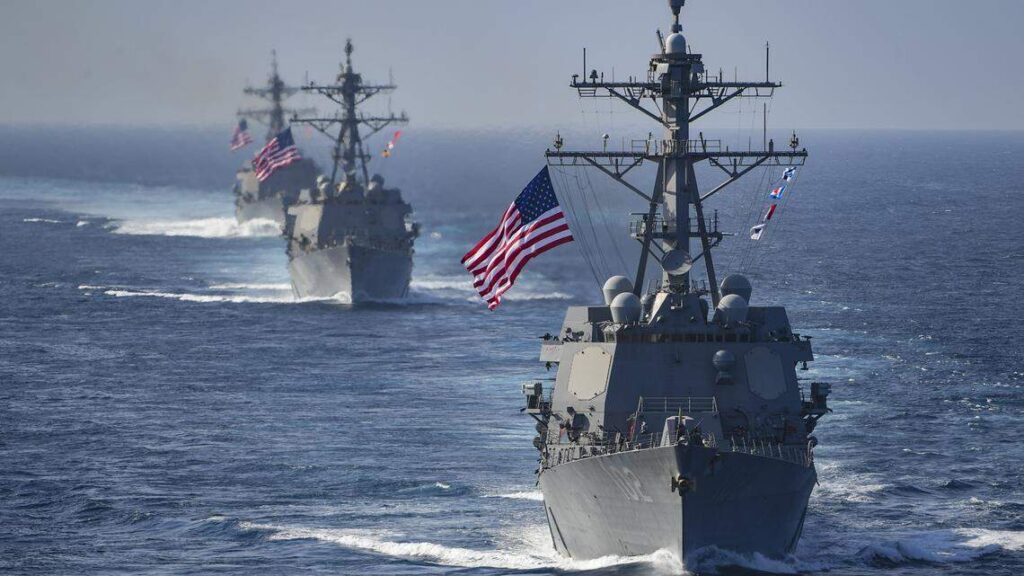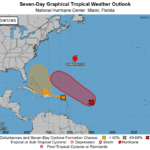U.S. naval forces have conducted another lethal strike on a vessel President Donald Trump said was tied to a designated terrorist organization involved in drug trafficking in the Caribbean.
The strike marks the fourth such attack on a suspected drug-smuggling boat since the Trump administration launched a major military deployment in the region aimed at disrupting narcotics networks.
“On my orders, the Secretary of War ordered a lethal kinetic strike on a vessel affiliated with a Designated Terrorist Organization conducting narcotrafficking in the USSOUTHCOM area of responsibility,” Trump wrote on his Truth Social account.
Trump said intelligence confirmed that the vessel was transporting narcotics along a known smuggling corridor used to funnel drugs into the United States. Three men aboard the vessel were killed in the strike, he said. No American personnel were injured.
With Friday’s action, the total number of people killed in U.S. counter-narcotics operations since Trump ordered warships deployed to the Caribbean has risen to 17.
Trump did not specify the exact location of the strike, the name of the terrorist organization allegedly involved, or which branch of the U.S. military conducted the operation. He cited only Doral-based Southern Command, which oversees military operations in Latin America and the Caribbean.
The president framed the strike as part of a broader effort to confront narcotrafficking and hold foreign actors accountable for what he described as threats to American communities.
“STOP SELLING FENTANYL, NARCOTICS, AND ILLEGAL DRUGS IN AMERICA, AND COMMITTING VIOLENCE AND TERRORISM AGAINST AMERICANS!!!” Trump wrote in a warning to criminal networks.
The military operations come amid mounting tensions between Washington and Caracas. The U.S. has accused Venezuelan President Nicolás Maduro of overseeing a drug-smuggling syndicate known as the “Cartel of the Suns” — a charge Maduro’s government has repeatedly denied. The Trump administration has offered a $50 million reward for information leading to the arrest of Maduro, who faces drug-trafficking charges in the U.S.
Earlier this week, Trump said U.S. forces destroyed a vessel allegedly operated by “extraordinarily violent drug trafficking groups” based in Venezuela. He claimed the boat was carrying three “narcoterrorists” through international waters.
The administration’s actions have drawn scrutiny from legal scholars and human-rights advocates, who warn the strikes could raise serious questions under international law. Critics point out that the targets appear to be civilians, and argue that lethal force is only permissible when individuals pose an immediate threat and no other means are available to prevent harm.
Under both international law and U.S. law, military force is tightly restricted outside of declared war zones. Killing civilians—regardless of alleged criminal ties—may constitute a war crime unless clearly justified by imminent danger.
The U.S. military buildup includes eight warships—some with amphibious assault capabilities—F-35 fighter jets and approximately 4,500 service members. It is the largest show of American force in the Caribbean in decades and has alarmed several regional governments, which worry the operation could further destabilize an already volatile geopolitical environment.
The administration has characterized the campaign as a top national security priority and a necessary step to protect the U.S. from narcotics-related violence and foreign-sponsored terrorism.
By ANTONIO MARIA DELGADO/Miami Herald



